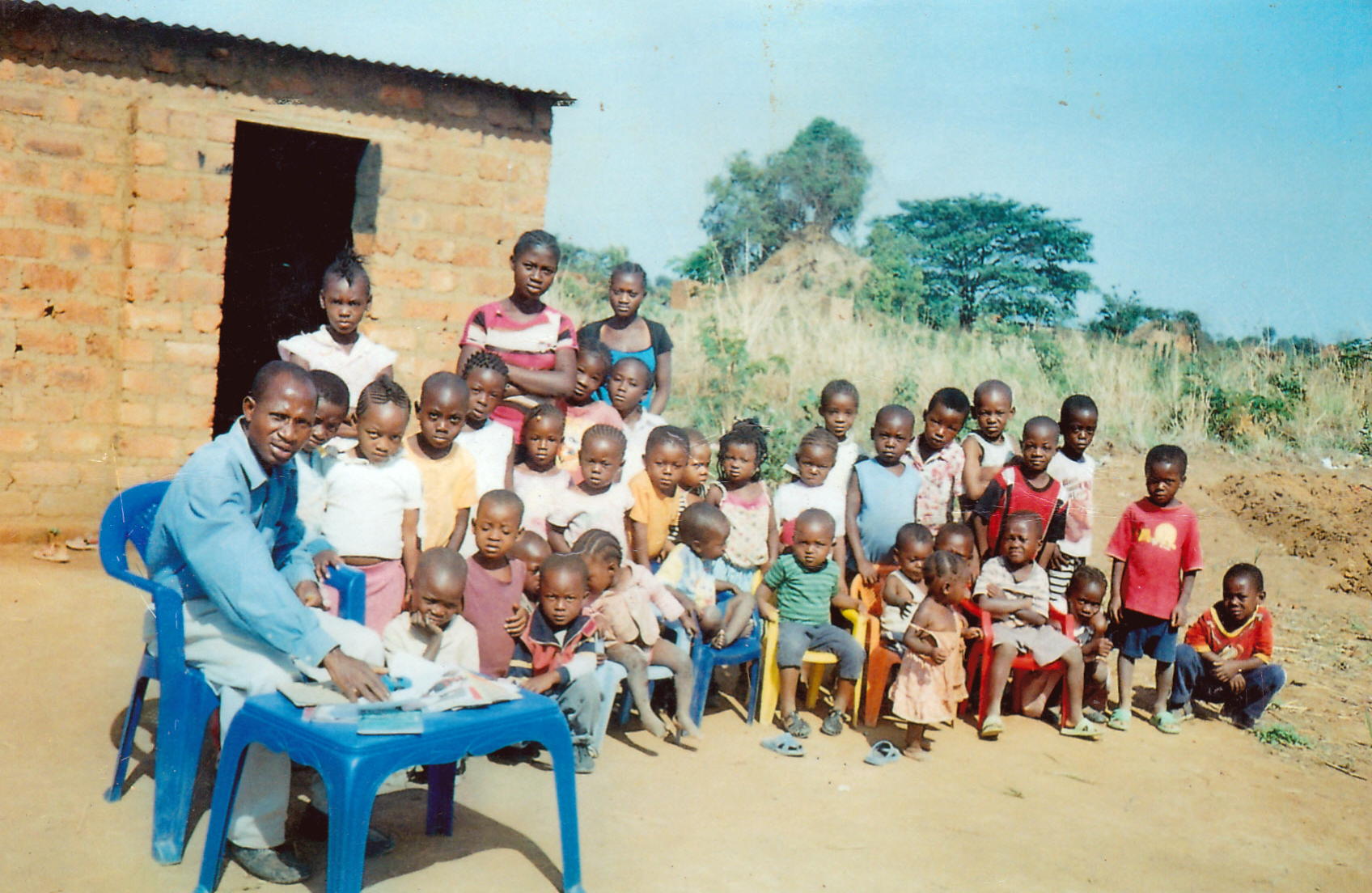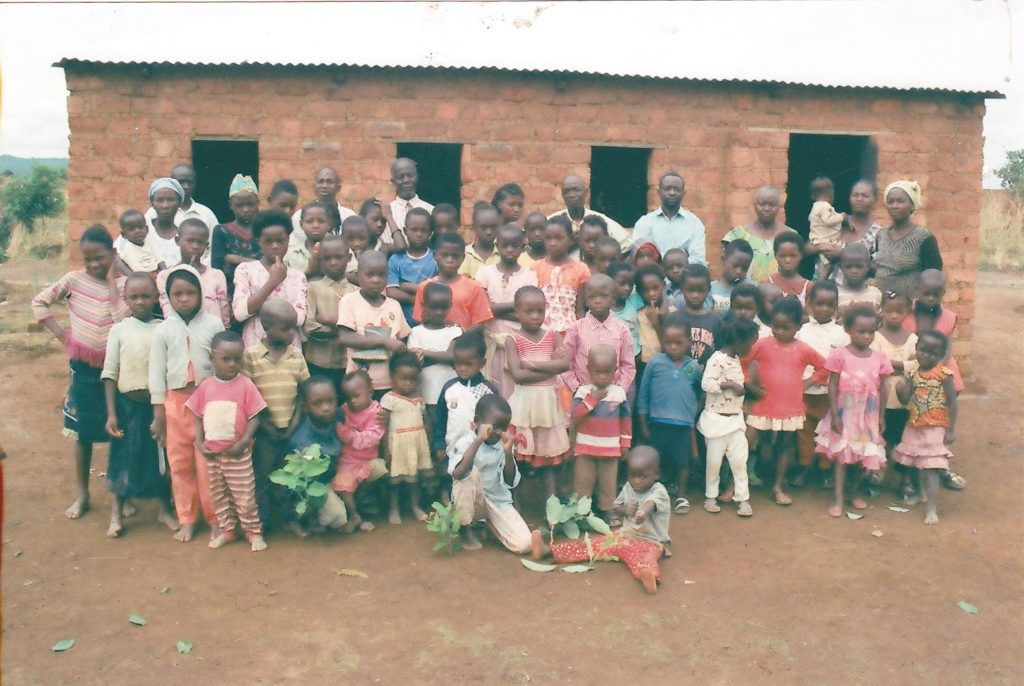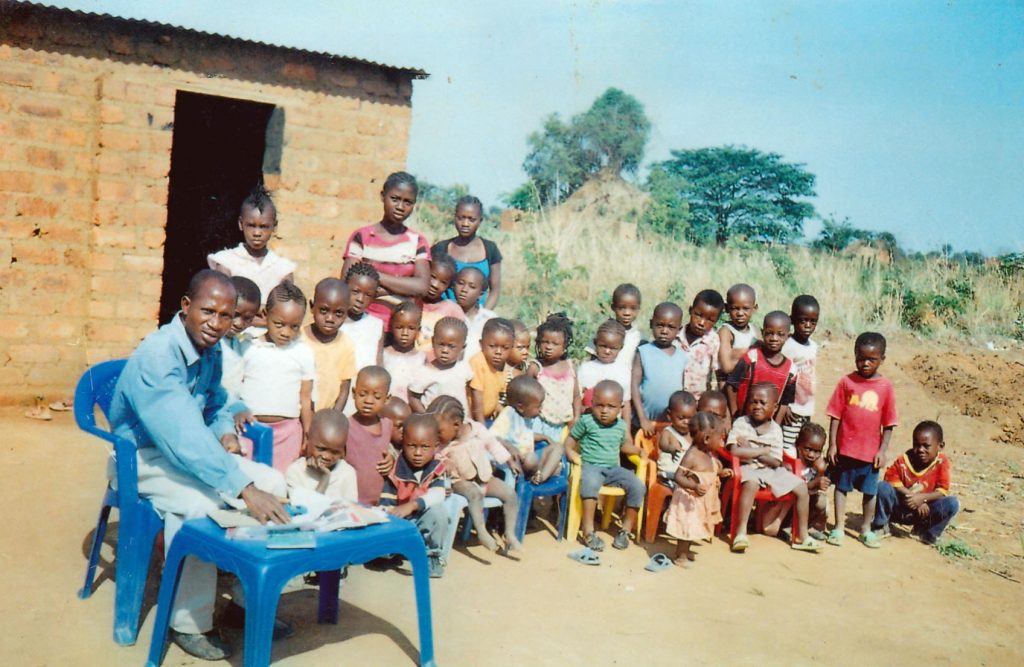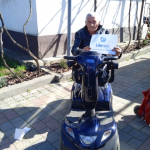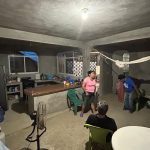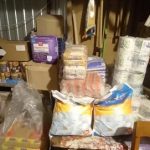March 4, 2017
Here is a report about LifeNets now working with people in the Democratic Republic of the Congo.
This past December I heard from our dear friends Derrick and Cherry Pringle in Zambia who live just a few miles from the border of the Democratic Republic of the Congo (DRC). He is one of our LifeNets representatives in Zambia. He is also pastor of churches all along the border of Zambia and the DRC.
The group of Sabbath-keepers in the Congo
Derrick wrote to me about a heart-rending situation in the Congo that involves a group of Sabbath-keepers close to the border. There is little travel and communication with the DRC, as it is a nation in disarray with ungovernable regions, warlords, poverty, starvation, atrocities, genocide and general misery. The DRC is neither democratic nor a republic.
For more than a 150 years, the Congo has had a tragic history of all things miserable.
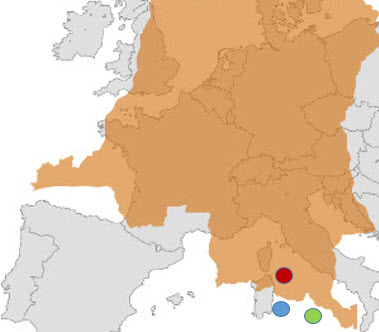
Overlay of the DRC over continental Europe. Green dots are UCG congregations in Zambia. Red dot is location of group in the Congo.
During the era of Belgian colonization in the late 1800s, it was brutally exploited for natural resources. Much of this was done during the reign of King Leopold II, who ran the huge colony as a private venture. Under his reign, about ten million (with some estimates running as high as 14 million) people died in his extraction of ivory, rubber and other resources. Human rights abuses under his regime contributed significantly to these deaths. Reports of deaths and abuse led to a major international scandal in the early 20th century, and Leopold was ultimately forced by the Belgian government to relinquish control of the colony to the civil administration in 1908. But, since that time, there have been competing factions seeking to be in charge of the government, which has led to further unrest and genocide.
After independence on June 30, 1960, mayhem continued as the Congo continued to be bathed in blood. Competing militias and tribes fought one another for control of sections of the vast country. Independence changed very little of how the general population fared. Warlords actually want conflict to continue, as it provides them with a living. They are supplied arms and aid from foreign powers who have their own reasons to use them as proxies in constant fighting. The high price for this is paid by generations of a poor and battered population.
One of the three Festival sites in Zambia is in the Copperbelt, very close the border of the DRC. One of our prospective members from the DRC, Sam Kasonga, has come over the past two years to keep the Feast with us. He oversees a group of interested people in the DRC. He is associated with our deacon, Changa Changa, in the Solwezi church lying close to the DRC border. It is pastored by Derrick Pringle. Through Derrick Pringle and Changa Changa, we have provided booklets in French for teaching the DRC group. French is the language of the Congo and there is a great need to provide more in-depth instruction for them.
Derrick Pringle will be arranging for Kasonga to visit on the Zambian side to see what more can be done.
Earlier in December 2016, Sam Bwalya, one of our members in the Copperbelt congregation, traveled to the DRC to visit Sam Kasonga and the group of people who are Sabbath-keepers. In his report he reveals little-known conditions in this forsaken land. First, here is what Derrick Pringle wrote:
December 20, 2016
Dear Victor,
We trust that you all are well and that the Work is continually moving forward. We have had some good rains of late, although our total to date is half that of last year.
I am writing about Sam Kasonga, our prospective member, who has been attending the Feast with us for the last two years. When he can, he attends the Holy Days. He has been asking for a visit for some time but said it would not be safe for me to cross the border. There is political unrest in the Congo, and even Mr. Bwalya nearly did not go.
There has been rioting in the Congo because the President, Mr. Kabila, refuses to step down. A number of people have been killed and the situation is tense. This is the time of the year when the rains are here and crops planted but due to the uncertainty and unrest very little ground is being cultivated. It is a sad state of affairs with no prospect of stability.
At the Feast we arranged a date for Sam Bwalya to visit Sam Kasonga. It was very disturbing to hear of the 80 orphans Kasonga is looking after and giving an elementary form of education. Nshima (cooked ground maize) is very expensive, 50% more than in Zambia. The children get one meal a day, which is a handful of nshima. I have asked the Copperbelt church to collect money to assist them. Border police will not allow us to take meal into the Congo.
Kasonga has requested more frequent visits and funds to extend the school room, building, benches, etc. We will have to see if this can be handled by the French work.
Your comments and advice please.
Regards,
Derrick
Derrick then sent me the report from Zambia deacon Sam Bwalya, which follows:
A Visit to the Congo
Date: December 12, 2016
I left my home on the 9th of December 2016 going to the Congo (DRC) and spent a night in Chililabomowe, a border town to Congo.
At about 0830 hours, I left for the Congo. The fleet of trucks definitely told me that I'm going to a border. It was terrible in the mini bus I was in. Smuggling of mealiemeal is rampant. At the immigration site, I saw many people busy changing money. Definitely you can see that there is poverty and people are really suffering in that country and the conditions are not stable at all.
Kasongo came to meet me with his friend Stephine Musangu. When I asked to go through the immigration, they told me "No, No. Bwalya, you will simply go with us using the village routes." When we came to Mr. Kasongo's home, where I waited an hour for people to arrive. My greatest desire was to see the people from the church and hear from them and their challenges.
I really wept when the orphans started coming to a church building which Kasonga has constructed, which also serves as a school. They were eighty in number, about 14 are being kept or looked after by Stephine Musangu. At 1400 hours people came and the service was on.
Language - they speak Swahili and French, but some do speak Chibemba, my language. They wanted to know about the tithe. I explained this to them. They were extremely happy to see me as one of the servants of the Lord.
Here is a summary of some of the needs:
(1) They want to extend the church building because many people are coming to the church
(2) The floor needs cement so that the floor can become smooth
(3) There are no chairs in the church. People sit on logs and bricks, even pupils use the same bricks and logs. There are only few chairs--about six.
(4) Kasongo has a typewriter but it has no ribbon--a ribbon is needed.
(5) The magazine Beyond Today must be in French. Also the booklets.
(6) There are four in the church who ask for French Bibles.
(7) Reading books are needed for the youngest grades. Most of the children haven't been to school.
(8) Comment: Lots of work is needed in Congo.Bwalya Sourenial
This is deplorable. What surprises me that in the midst of these dreadful conditions they are concerned about expanding their church building, curious about tithing, desirous of making every effort to educate their children, read the Bible and be further instructed through our church literature.
Also, incredible to me is that one of the poorest of all United Church of God congregations in Zambia's Copperbelt is trying to do what they can to help this situation. On top of this, we cannot even bring food into the country and will have to arrange for them to find it in their country where desperation and tensions abound.
While technically this area is French-speaking, the DRC is a vast country which will not be easy to be visited by our French-speaking ministry. It is more than 1500 miles on the dangerous road from the Copperbelt to Kinshasa, the capital of the DRC.
Beverly and I plan to visit Zambia's Copperbelt and Solwezi in April 2017.
We had put out a call for help with the needs in the Congo and received more than $8000 in donations that have been sent to Derrick Pringle to provide food for the orphans for some of the church needs that have been described.f
On February 7 Derrick wrote to me and told me that with the Congolese leader Sam Kasonga they discussed his various needs and the way forward. He said:
Basically, there are two things needed: improving the classroom and taking care of the orphans. Previously I had asked him if there was not some enterprise that he could do to generate an income.
He has come up with the idea of doing broiler chickens. I like this plan because hopefully, it should be an income generating cash flow of which the profits can then go towards the orphans and improvements to the classroom. It also gives him some self-esteem that he is doing something positive.
We decided to start with 100 chickens. If he does well on that we will gradually build to stagger 300-400 so that he has a constant market supply. The initial 100 will cost $80 of which I gave him. If at the end of the day there are any funds left over then we can make a donation for the building.
Previously we gave him a large bag of children’s clothes from my son Mack and again this time. Cherry had got together medicines, mainly Malaria tablets, Imodium and flu mixture. He also got a box of church literature in French. Mack has been selling old clothes and the money was given to Sam to buy food for the orphans. He had quite a load to carry but seemed to cope quite well!
I have arranged for him to come to Mufulira to meet you
I had earlier in December written to Derrick about how the people in the Congo had heard of us and how it is we became involved. Derrick writes:
The following is a discussion I had with Sam Kasonga.
He did remind me that he had met you at Mufumbwe when we went there.
Q) How did you hear of the church?
A) Was given a Good News and then met Changa – Changa. (now a deacon in the Solwezi, Zambia church)
Q )How do you make a living to be able to support orphans?
A) My wife is a private teacher & she supplies the Funds. I also teach French & Swahili.
Q) Do you get any other donations?
A) No.
Q) Where do the orphans stay?
A) 14 stay with me and the other 70 odd with aged or single parents.
Q) Why are there single parents?
A) The other spouse has been killed in the Congo conflict.
Q) What is the best means to be able to assist you?
A) I would like to start doing broiler chickens, starting with 100.
Q) Are you experienced in that line?
A) A little, I have a friend who knows and is willing to help.
Note: He has a room that can be used. Day olds, feed, drugs etc. is delivered to his area from Zambia, although at a high cost. We then discussed his schoolroom/church that he uses. It is now too small and would like to extend it. The floor is bare ground, there are no benches.
I have arranged for Sam to visit me with detailed costs of setting up the chicken business and extending the schoolroom, a concrete floor & benches. I did inform him that this would all depend on what donations we could get in.
He also requested French & English Bibles. We will enquire at our local bookstore. Apparently, there are a group of people who have shown interest in the church.

